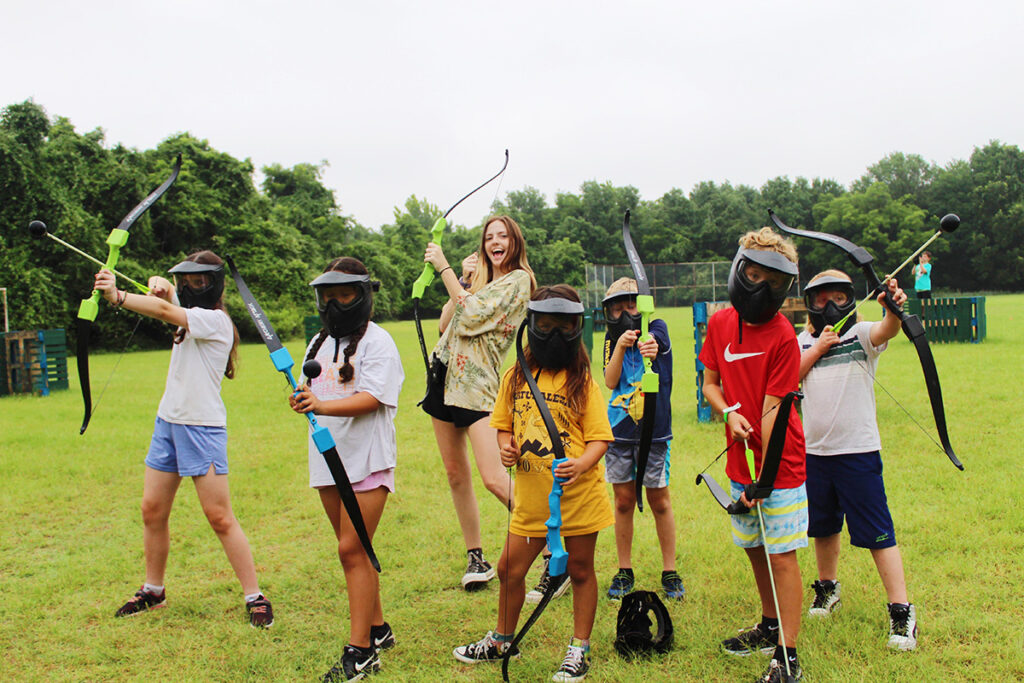When campers arrive at your cabin, you will find each camper is different; and each week’s combination of personalities will present their own challenges. Some will be extremely excited to be there, while others might be a little nervous. Some campers are coming with friends or siblings, while others might not know anyone. One week you’ll have a cabin filled with introverts, and the next week you’ll have attention-seekers, a bully, and the rest who don’t like camp. Within the many possible combinations of dynamics, it is sometimes the shy camper that is overlooked. It’ll be important to know how to incorporate everyone and foster an environment of inclusion with your campers, helping them navigate the possible special needs of a shy camper. Your leadership will be the catalyst for engaging and supporting those who may need a little extra encouragement with interpersonal relations.

Starting Strong
Whatever atmosphere or tone that you set at the beginning of the week will be the stepping stone for the whole experience. During your first private gathering with your campers, let them know they are a unit that needs to look out for each other. Tell them it’s important to make everyone feel included, and to be kind and respectful towards other campers’ feelings and boundaries. Reenforce that your cabin will be a safe place for conversation and interactions.
Sometimes campers will be in a cabin with their friends and it’s easy for the one person who doest know anyone to feel left out. Usually this exclusion is completely unintentional, as everyone is drawn to familiar, comfortable people. Sometimes all it will take is quietly reminding them to include others in activities and conversations, and usually the problem is resolved.
If a child is being left out regardless, it is your job to be that connection. Hold conversations at the lunch table, walk with them when they are at the back of the line on a hike. As the week progresses, you can enlist the more extroverted campers to specifically reach out to the quieter campers.
Plan conversation starters and icebreakers ahead of time. The first day, get together and lead the tone by sharing something about yourself. It will take campers time warming up to each other, however modeling openness and inclusion will get things started right.

Personal Connections
As girls’ director a couple years ago, I saw one girl had separated from her cabin while watching the rodeo. She was very quiet and not really paying attention to the activities around her. I noticed she had a sketchbook, and being an artist myself, I thought I would bring up a similar interest. I sat down with her and told her that she didn’t have to show me her drawings if she wasn’t comfortable, but it was cool that she liked art, and to keep at it. Her entire demeanor changed for the rest of the evening. She happily showed me her art, and ended up talking about a video game I had zero knowledge about for around an hour. I continued to notice throughout the week that she drifted around, with little interactions from others, so I made sure to engage with her whenever I saw her. Every time I came over, she enthusiastically talked about anything that crossed her mind. The point is that some kids will be naturally shy and will take quite a bit more coaxing to come out of their shell. Sometimes they need a little patience and intentional interaction.

If you are having difficulties getting a child to participate in activities, here are a few things you can do. Let them know that they might have more fun than they think. Try to give them a choice. For example, if your cabin has to do a skit up front, and one camper is less enthusiastic about being in front of people, let them hold the cue cards in the front row, or hand out the props behind the scene. This means they will get to participate while still feeling like they have been heard and respected. Your goal is to give a choice, whenever possible, that results in participation.
Sometimes, you have to put your foot down. One summer, I was bringing up the rear of a canoe outing. A camper decided that they were done participating in the middle of a three hour trip. No matter what I did or said, the camper refused to paddle his kayak an inch further. We were just sitting in the water, while I tried every compromising strategy I had in the books. It got to the point where I couldn’t let him continue that course of inaction, for safety reasons. So I tied my emergency rope to the bow of his kayak and the back of mine, and towed him the rest of the way. I was able to physically make him participate only because it didn’t involve physical touch.
If someone else is around who has more authority than you, like a director or other leader, enlist them. Sometimes you need more than one person encouraging an uncooperative camper. When you’ve done everything you can, it’s time to go “up the ladder.”
One year, at the beginning of the week, all my campers were out swimming. While in the cabin I heard a phone notification, even though they had supposedly turned in their phones to the office for the week. When my campers came back, I told them that no one was in trouble, but I expected them to be honest and turn in their phones to me. When no one came forward, I told them that I would need to bring in the girls’ director, and she would deal with this. Immediately every single girl brought me their phone. This experience was actually positive, because it set the tone for the rest of the week, and they cooperated and participated wonderfully.
Successful Summer Experiences
Every cabin experience will be different, but no matter the combination of dynamics, as long as you facilitate respect and inclusion of each other, the week will be a success. Encourage, listen, include everyone, engage in their interests, be patient, present options, and get help if you need it. In doing these things, you will be able to engage and create positive experiences for even your shyest campers.




